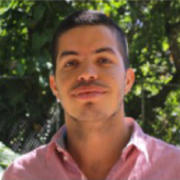
Dr. Carlos Faerron Guzman is Director of Inter American Center for Global Health in Costa Rica.
What is your current position?
I am the director of an incipient academic research center in Costa Rica called the Inter American Center for Global Health.
Can you describe your career path?
I started defining my career path in my last year of medical school. I was trained by a lot of specialist clinicians and decided that I also wanted to become a specialist. However, in my last year of training, my 6th year of medical school, I did a 12-week block community medicine experience. I drew the short stick and was sent to a place called San Vito de Coto Brus, which was a very rural area in the southern region of Costa Rica. There I encountered indigenous and migrant populations that I had previously not known existed. That revealed to me a little bit of the ignorance that we have as we go through medical school in an urban hospital; we don’t relate to anything beyond that setting.
That first 12-week experience working with indigenous populations led me to rethink where I wanted to take my career. Fortunately, I was mentored by a visionary public health leader, Dr. Pablo Ortiz, who really influenced the way I look at health. I decided to do a couple of years as a primary health care physician in an indigenous community. From there, I started engaging with other institutions, such as the Ministry of Health. I was working for the Social Security Fund, the primary health provider in Costa Rica, and engaging from there the Ministry of Education, and other multilaterals such as UNICEF, IOM, and UNDP. That’s where I first encountered the term “global health.” As I was engaging with this term global health, and realizing I was part of it also, I started becoming very interested and reading about the movement. Soon after, I came across an opportunity to engage in global health undergraduate education.
This led me to get my global health degree in Scotland and Amsterdam. When I came back to Costa Rica, I started applying the concepts I had learned and engaged with people that were aligned with this vision of comprehensive health care and equity and social justice. Following the legacy of our common mentor, Dr. Ortiz, we eventually created the Inter American Center for Global Health—a research and academic center based in Costa Rica.
Can you share your top career goal?
My goal is to take global health and integrate it into all health careers—in developing and developed countries. I think all health professionals need to know about this comprehensive approach that stems from social justice principles and equity. We need to get away from the status quo and the belief that health is just the absence of disease.
What is the biggest challenge you face in your current position?
The biggest challenge is creating change within institutions. Institutions are built upon foundations, and many times those foundations are very rigid. An example is academia, which can be rigid because you have to manage egos. It is difficult, for example, to tell a very highly-qualified doctor that maybe he could take a better approach to his work. When you tell this to people, they will often be offended.
What impact do you think GHDI will have on your career?
There are two main takeaways I’ve gotten from GHDI. One is that you have to think outside the box and be creative. In order to be creative, you have to tap in to different resources, which means looking beyond your immediate contacts and expanding your network to other health professionals.
The second takeaway is about the dynamic and ever-changing nature of problems. The amount of responsiveness and flexibility we have in our work needs to be considered when we’re doing program design and program implementation. You’ve got to think about the components of any situation so that you can be flexible, iterative, and create a more dynamic design. Those are the two key takeaways that I’ve seen from the overall GHDI course.
Another thing about GHDI is that the richness of the program lies within the classmates. I really value the diversity of the people that are here. Not just geographically, but from a professional background, and the work people are doing. There’s so much to learn from each other. I’m looking forward to keeping connected with people in GHDI, not just my student peers but also my professors and the administrative side of GHDI.
What are you most proud of in your career?
The thing I’m most proud of is seeing how some of the people that we’ve engaged are starting to have a change in mindset about what a health professional profile should be and what impact different health professionals can have upon communities, patients, and stakeholders. The former dean of my medical school said to me, “You know what? I did this for 35 years, and I think you guys have it right. This is where we should take our curriculum, this is where we should take medical training.”
What advice would you give to someone just starting out in health care in your country?
My number one piece of advice is do not rush. Take some time to actually engage with places and other people and subject areas outside your comfort zone. If you can get that wide perspective of what a professional can do in a community, or in an institution, or with an NGO, you can actually make better career decisions because you’re making the decisions with all of your cards in front of you. Try to understand that beyond those hospital walls and beyond that classroom that you’re sharing with your peers, there are so many other things going on, and you have to experience that before you make life decisions.